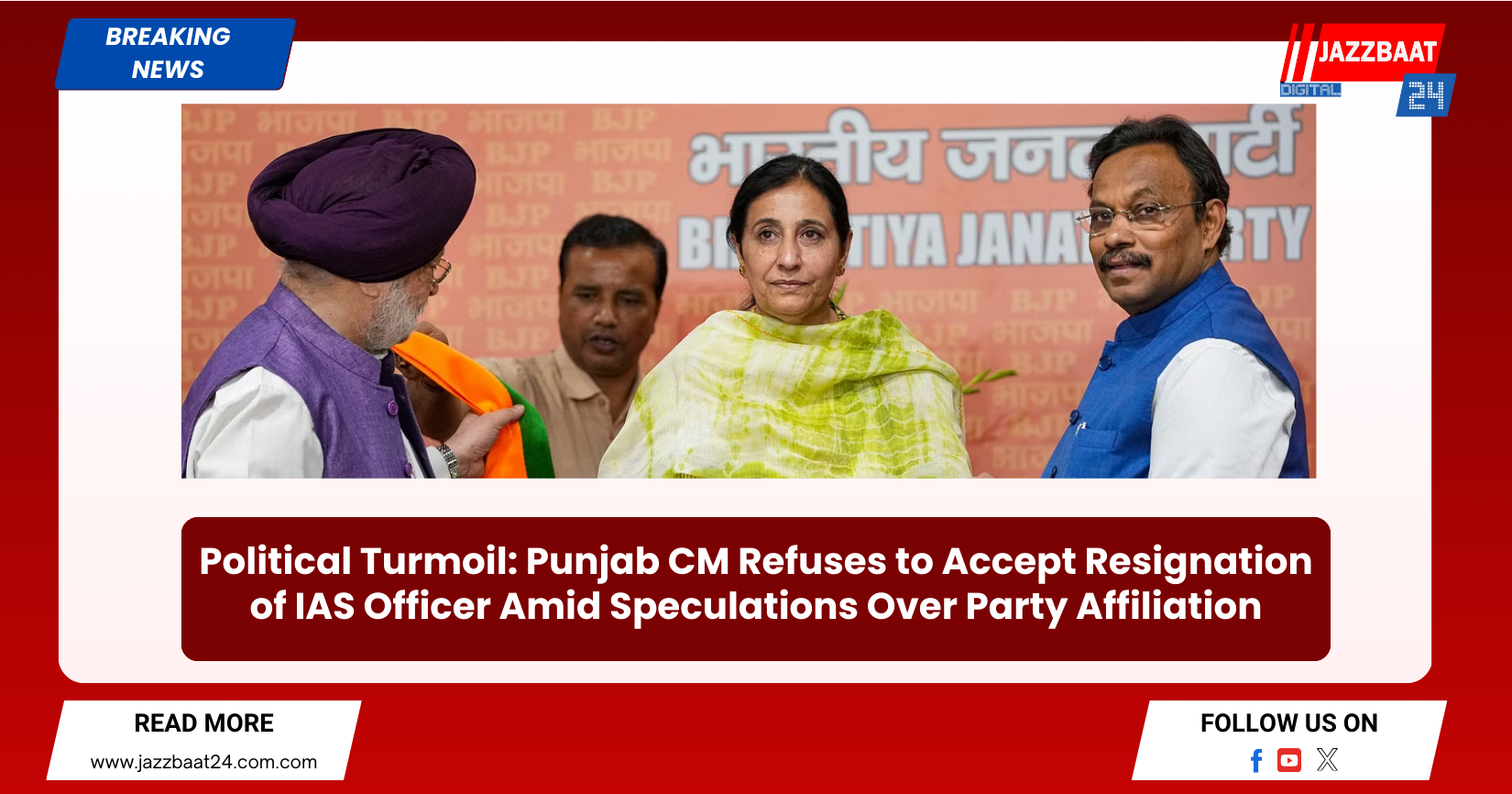The political landscape in Punjab is engulfed in uncertainty as Chief Minister [Name] refuses to accept the resignation of a senior Indian Administrative Service (IAS) officer, Parampal, amidst speculations surrounding his recent decision to join the Bharatiya Janata Party (BJP). The development has sparked controversy and raised questions about the neutrality of the bureaucracy in the midst of heightened political tensions.
Parampal's decision to join the BJP has sent shockwaves through Punjab's political circles, with many viewing it as a significant defection from the ruling party. The senior bureaucrat's allegiance to the opposition party has fueled speculation about his motives and the potential ramifications for the state's administrative machinery.
In light of Parampal's decision, Chief Minister [Name] finds himself in a delicate position, torn between accepting the resignation of a trusted bureaucrat and sending a message about the impartiality of the civil services. The refusal to accept Parampal's resignation reflects the government's reluctance to set a precedent of accommodating bureaucrats aligning with opposition parties.
The situation has escalated into a political standoff, with opposition parties accusing the ruling party of undermining democratic norms and attempting to suppress dissent within the bureaucracy. The controversy has reignited debates over the politicization of the civil services and the need for stringent regulations to prevent civil servants from engaging in partisan activities.
Parampal's defection to the BJP comes at a time when Punjab is gearing up for crucial elections, adding another layer of complexity to an already fiercely contested political landscape. His decision to switch allegiance has drawn mixed reactions from the public, with some lauding his courage to take a stand and others condemning it as a betrayal of public trust.
As the standoff between the Chief Minister and Parampal continues, the spotlight remains firmly on Punjab's political arena, with stakeholders closely monitoring developments and speculating about the potential impact on the upcoming elections. The Chief Minister's refusal to accept Parampal's resignation underscores the high stakes involved and the deep-rooted divisions within the state's political establishment.
Amidst the political turmoil, there are growing calls for transparency and accountability in governance, with citizens demanding clarity on the principles guiding the relationship between the bureaucracy and the political leadership. The controversy surrounding Parampal's resignation serves as a sobering reminder of the challenges inherent in maintaining the integrity and independence of the civil services in a fiercely competitive political environment.
As Punjab braces for a period of heightened political activity, the outcome of the standoff between the Chief Minister and Parampal remains uncertain. The episode has underscored the need for greater vigilance and robust mechanisms to safeguard the neutrality of the bureaucracy and uphold the principles of democratic governance.

